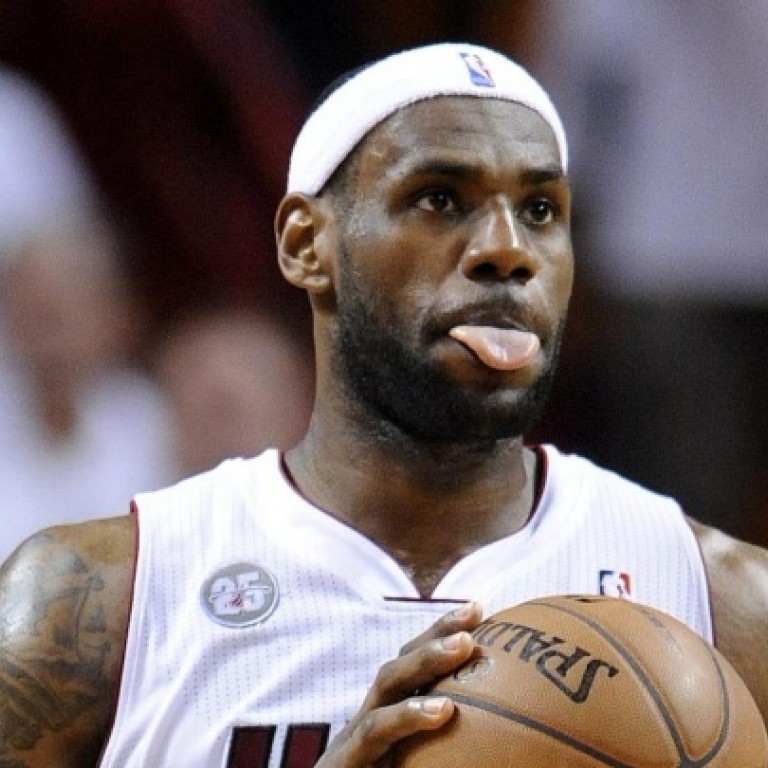
Miami-Pacers confrontation should be a far cry from 2012 encounter
Depth of talent available on Spoelstra's bench gives Miami-Indiana match-up a very different flavour than last year's series
Erik Spoelstra, mad chemist that he is, started Dexter Pittman in game three of the 2012 Eastern Conference semi-finals against the Pacers.
Predictably, that lab experiment blew up in Spoelstra's face like the unstable concoction it was, and, if memory serves, set off a chain reaction of panic that left many wondering whether the Heat's grand gamble was doomed.
History has a way of glossing over the particulars but, at the time, there was a very real sense that game three was the Heat's Waterloo.
There was infighting, of course. Dwyane Wade famously had to be restrained from his coach during one timeout. Wade, nursing a bad left knee that would later require surgery, finished the game with five points.
There was instability. Shane Battier, forced into the starting line-up after Chris Bosh's abdominal injury in game one, went 0-of-7 from the field and 0-of-6 from three-point range.
There were anomalies. Mario Chalmers led the Heat with 25 points that night in Indianapolis.
It seems laughable now, but a few members of the media even suggested after the loss that the Heat had to break up the Big Three and start from scratch.
In a sense, the Heat did start from scratch after that loss, winning their next three to end the series in six games.
"Last year was about survival, really," Spoelstra said. "We were down 2-1 and had to reinvent a game that we hadn't played without Chris."
How is this for perspective: Joel Anthony led the Heat's bench in scoring in two of their first three games against the Pacers in last year's play-offs. This year, Anthony has played 17 minutes total in nine play-off games.
Much will be different about this year's match-up between the Heat and Pacers, and it all starts with Bosh being healthy and at the top of his game. But how the Heat's reserves affect the series might be the most significant key to the game.
The Heat's bench scored 55 points last week in game two of their Eastern Conference semi-finals series against the Bulls. In last year's conference semis against the Pacers, it took the Heat's reserves nearly three full games to reach that total.
The major differences between the Heat's bench now and the rag-tag group that slugged it out with the Pacers in 2012:
Ray Allen, who was with Boston this time last year and gearing up for a match-up with the Heat, is averaging 12.2 points per game in the play-offs. Per 36 minutes, Allen is contributing 17.8 points in the post-season, which is his most efficient scoring output in the play-offs since 2005, his final run with the Seattle Supersonics.
"Anybody coming off the bench, you've got so many guys that can play," Allen said. "Spo can call anyone at any given moment. You've got to be ready. We all represent each other. You want to play for your brother on the bench or your brother on the floor. We're all ready. The extra pass is always available."
Chris Andersen, who was on his couch in Denver this time last year, has provided much-needed muscle and energy to the Heat's second unit. Andersen is only averaging 13.7 minutes per game in the post-season, but his post-season win-share value per 48 minutes - an advanced statistic used by some general managers to estimate the number of wins contributed by a player - is the highest of his career (.379). The league average is .100.
Norris Cole was a minor footnote against the Pacers last year, averaging 2.0 points and less than 13 minutes per game. He has played more than 20 minutes in eight of the Heat's nine games this post-season and was 9-of-11 from three-point range in the Heat's Eastern Conference semi-finals against the Bulls.
Plugged into the starting line-up against the Pacers in 2012, Battier is back on the bench but his approach hasn't changed.
"We expect to play like starters and play well," Battier said.
Given the depth of the Heat's bench and the health of Bosh, it's difficult to even compare the version of the Heat that grinded past the Pacers in 2012 and the team who will take on Indiana in the best-of-seven Eastern Conference finals beginning tomorrow morning (Hong Kong time) at AmericanAirlines Arena.
One oddsmaker in Las Vegas recently made the Heat absurd 2-15 favourites to win the series.
"Our bench is key," said LeBron James (pictured). "They're the group that brings in energy and some of the things that don't always show up in the stat sheet.
"What Bird does, what Shane does, what Norris does, doesn't always show up in the box score, but it helps when you do have those contributions that do show up in the box score: Ray's ability to shoot the three, Norris' ability to get steals and to score, Bird's ability to block shots and get rebounds.
"We're very deep. Our team is very deep, and we can play 10. We can play 11 if we had to. We could play 12, honestly, if we have to."
Don't give Spoelstra any ideas.
